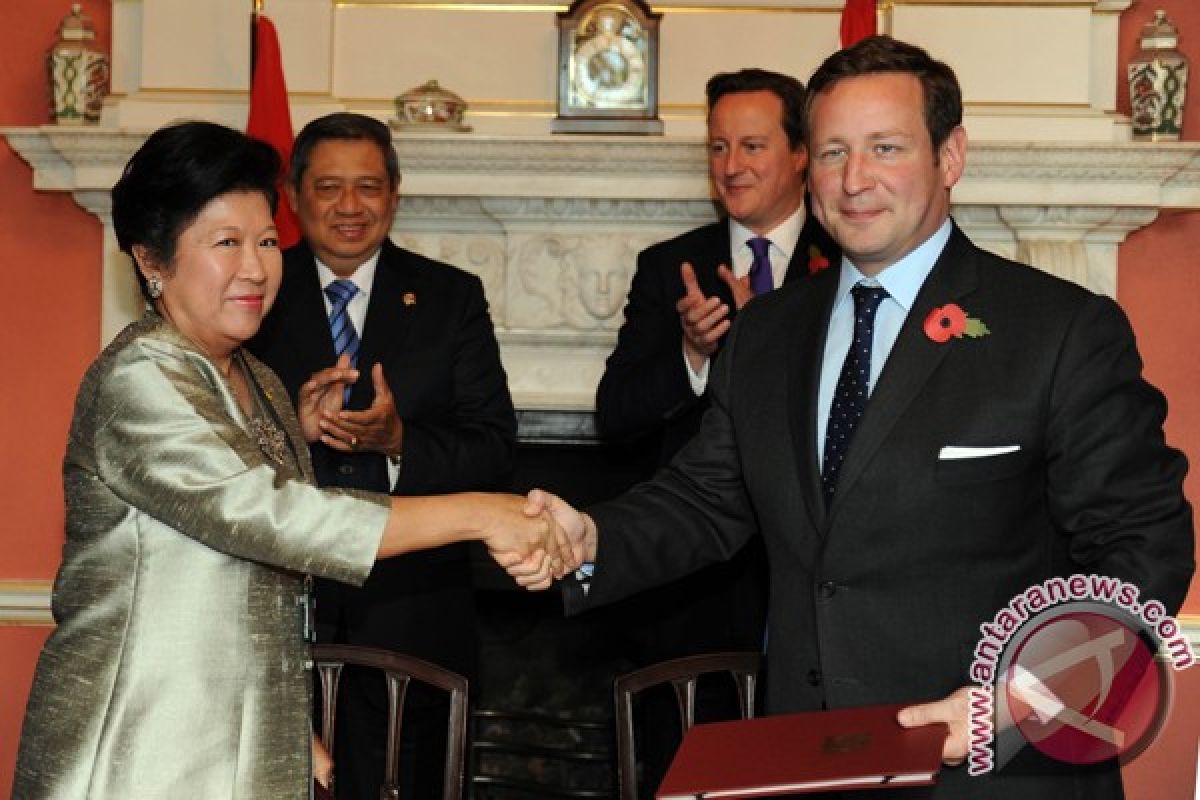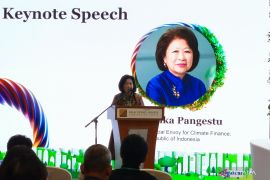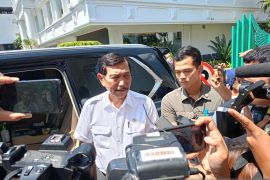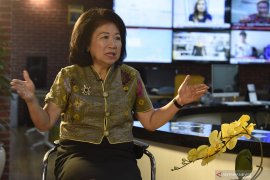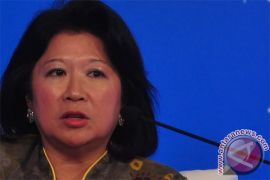"Indonesia and Britain will developing their creative industries."Jakarta (ANTARA News) - Having enormous opportunities for creative industries at home and abroad, Indonesia is making efforts to develop them in cooperation with many countries.
During Indonesian President Susilo Bambang Yudhoyono's visit to Britain, the two countries have agreed to cooperate in developing their creative industries.
Creative industries are one of the largest and fastest growing industries in the global economy, with immense growth potential.
Therefore, Tourism and Creative Economy Minister Mari Elka Pangestu and the British Minister for Culture, Communications and Creative Industries, Department of Culture, Media and Sports, Ed Vaizey, have signed a memorandum of understanding (MoU) on cooperation in developing the creative economy.
Pangestu and Vaizey signed the MoU on Thursday in London after a bilateral meeting between President Yudhoyono and British Prime Minister David Cameron.
Before signing the MoU, Pangestu and Vaizey held a bilateral meeting to discuss the two countries` cooperation in developing their creative industries and the progress made so far.
"Indonesia and Britain will developing their creative industries through exchange of information and knowledge, capacity building, training, research, and promotion of talent in various spheres such as music, films, fashion, architecture, design, animation, interactive gaming, digital and culinary arts," Pangestu stated.
"Britain is focusing on 13 creative industries, while in Indonesia we are focusing on 14 creative industries, to begin with. Most of these industries are similar in both countries. We have only added culinary arts to the list, following the British model," she noted.
"Indonesia is rich in culture and local wisdom, which serve are crucial to the development of a creative economy," Pangestu said.
"Therefore, after the MoU, there will be an in-depth exchange of knowledge and experience, and more intensive cooperation with the British government in jointly developing the creative economy," she added.
Pangestu noted that the MoU would be jointly implemented by the Ministry of Tourism and Creative Economy and the British Council.
Meanwhile, Vaizey said he would follow up the MoU by visiting various creative industries in Indonesia.
Vaizei also agreed to send a British business delegation to Indonesia to explore business opportunities in creative industries.
Creative industries have the potential to support Indonesia`s economy and they account for 7 percent of the country`s gross domestic product (GDP).
"However, there are several things that need to be improved in order to develop the creative economy, namely human resources and entrepreneurs' access to finance and markets," Pangestu pointed out.
Therefore, Indonesia will cooperate not only with Britain but also with other countries such as New Zealand and Japan in developing the creative industries.
After a meeting with New Zealand`s Prime Minister John Key and Associate Minister of Tourism Chris Tremain in Jakarta on October 22, Pangestu said the two countries had decided to sign an agreement to cooperate in the development of their respective tourism and creative economic sectors.
"There is immense potential for cooperation with New Zealand in tourism because the country has successfully developed the sector over the years and is now considered as one of the world`s most popular tourist destinations," she continued.
Mari noted that Indonesia has become an important market for New Zealand because an increasing number of Indonesian tourists are visiting the country every year.
"I hope New Zealand will see a sharp rise in the number of Indonesian visitors after direct flights from Denpasar (Bali) to Auckland (New Zealand) are made available all year round," she said.
Meanwhile, New Zealand Associate Minister of Tourism Chris Tremain stated that Indonesia not only had a lot of potential in tourism, but also was "a country with high economic growth".
"We need to make some joint efforts to promote our tourism and creative economy in the global market because there are a lot of big opportunities in this field," Tremain explained.
He noted that Indonesia and New Zealand could exchange their experience in tourism and creative economy, as both countries have many things in common.
In addition, on October 10 this year, Indonesia and Japan signed an agreement on cooperation in development of creative industries, including in film-making, music, video games, and fashion design.
The agreement was signed by Pangestu and Japan`s Minister for Economy, Trade and Industry (METI), Yukio Edano, at an Indonesia-Japan Joint Economic Forum.
"We agreed on a mutually beneficial cooperation in developing creative industries," Pangestu said after signing the agreement.
"Indonesia and Japan will exchange their views and experience in the development of creative industries. Incentives will be offered and creative special zones will be set up," she stated.
"Besides, the cooperation will be expanded to other areas such as improvement of human resource capacity for better management of the industry as well exchange of experts," Pangestu added.
She said the cooperation agreement was as a follow up of her visit to Japan in September this year and it would be implemented in February 2013.
As per the agreement, METI representatives and a number of Japanese companies and experts will take part in Indonesian Creative Products Week (PPKI), to be held in Jakarta from Nov 21 -25 this year.
"Japan`s Iron Chef programme will also be broadcasted on Indonesian TV," Yukio said.
(Uu.O001/INE/KR-BSR/A014)
Reporter: by Otniel Tamindael
Editor: Priyambodo RH
Copyright © ANTARA 2012
